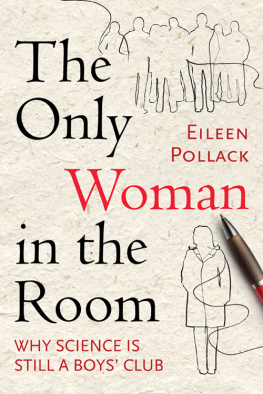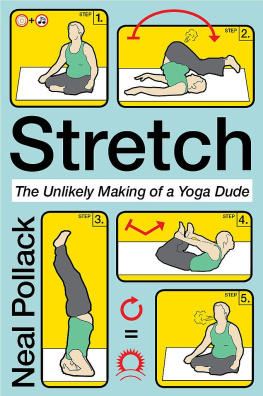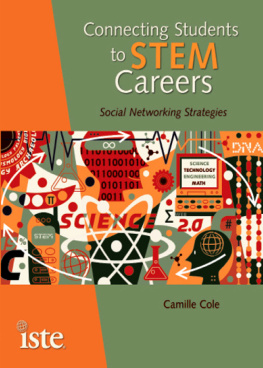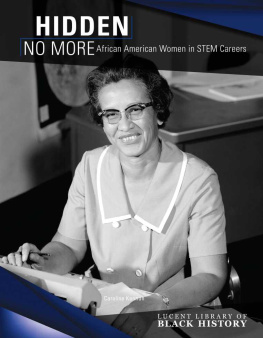To my sister, Joan, and my brother, Sheldon
And in loving memory of my mother,
Wilma Davidson Pollack
PREFACE
Bright College Years
In July 2008, I stood beneath an elegant blue-and-white-striped tent in a courtyard at Yale and listened in disbelief as my former classmates reminisced about their drunken bouts at Morys, the regattas in which they had sailed, the fierce squash matches and avant-garde theatricals in which they had taken part, and the As they had accumulated dozing through Rocks for Jocks. As my classmates rose from their seats and waved their white napkins while harmonizing with a chorus of middle-aged Whiffs in a nostalgic refrain of Bright College Years, I needed to lean against a nearby ivied wall to keep from wobbling.
My bright college years, in the mid-1970s, had been spent in the basement of Kline Science Library, paging frantically through physics textbooks in the hopes of finding problems similar to the ones I needed to solve for that weeks assignment; or in the Gothic laboratories on Science Hill, trying to connect a wire to an oscilloscope without electrocuting myself; or in the newly opened Yale Computing Center, where I fed punch cards through the reader and prayed that when I got my printout several days later, the program wouldnt have crashed because I had punched a period instead of a comma or one of the hairs I frequently shed (no doubt from all that stress) had prevented a card from being processed. Unlike most of my classmates, I had majored in science. In fact, I was one of the first two women to earn a bachelor of science degree in physics at Yale. Two of my female classmates pursued the less rigorous but still demanding bachelor of arts in physics, but as a measure of how isolated we all were, I didnt learn of the existence of one of these two women until that day at our reunion. As she and I stood comparing the reasons neither of us had gone on for our PhDs (my classmate had become an ophthalmologist), we couldnt help but wonder what, if anything, had changed in the intervening decades.
The odds that I would have gotten into Yale in the first place were miniscule to nil. I attended a rural public school whose accelerated track in physics and math I wasnt allowed to enter because, as my principal put it, girls never go on in science and math. Angry and bored, I began staying home from school and sitting in my parents attic, reading books about space and time. Senior year, after teaching myself calculus, I insisted that the school administer AP exams in the subjects I had studied (as well as English, which I loved but didnt value because everyone seemed to think that teaching English would be a lovely career for a girl like me). My efforts won me a spot at Yale, but I was woefully unprepared. Most of the young men in my classes had attended fancy prep schools like Andover or St. Pauls, or magnet schools like the Bronx High School of Science, where they studied several terms of advanced calculus and one or two years of intensive physics. They yawned as the professor sped through the material while I grew panicked at how little I understood. As the only female student, I debated whether to raise my hand and expose myself to ridicule as the one dim-witted girl who made all the boys wait while she asked a stupid question. By the time I resolved to ask my question anyway, I had lost track of the lecture and slipped even farther behind.
To make matters worse, I had grown up in Liberty, New York, in the heart of the Jewish Catskills, an outrageously profane, working-class resort area, where my grandparents owned a hotel, and I felt out of place at Yale, where even the other Jewish students seemed so aristocratic I had no idea they were Jews. Very few women taught on the faculty (none at all in physics or math), and I had only one female friend, my equally overwhelmed pre-med roommate, Laurel. Although no single obstacle caused me to give up or fail, the constant need to jump so many hurdles wore me down.
Take chemistry lab freshman year. The first class fell on Rosh Hashanah. Guilty about missing services, I was equally afraid to miss my first lab. As a compromise, I attended synagogue in the morning and then, still wearing my dress and pantyhose, showed up for the lab. When I followed the TAs instructions and poured a solution of hydrochloric acid into a glass burette, I left the stopcock open and dribbled acid on my legs. My stockings began to smoke; the nylon dissolved in crimson rivulets that ran, steaming, down my calves. Certain that the rivulets were blood but reluctant to call attention to myself by screaming, I hurried down the aisle between my classmates benches and tapped the lab assistant on his back. Excuse me, I said. Ive had an accident.
He wheeled around. You what?
I explained what I had done, and, to neutralize the acid, he dumped bicarbonate of soda on my legs. Horrified, I looked down at my pantyhose, which now gaped with ragged holes and were clotted with thick white powder. When I looked up, seventeen pairs of male eyes were focused on my legs. The accident could have happened to anyone. Except that, if it had, they would have been wearing pants.
Or consider my relationship to my advisor, Professor Parker. His first name was Peter, and back then, in the era when Peter Parker was a comic-book hero known only to the geeky few, I didnt understand why this made my classmates laugh, or why my professor wore a spider on his belt buckle, or why the door to his officewhich could be reached only via the entrance to Yales nuclear reactor, buried like a pharaohs tomb in Science Hillwas decorated with a giant web.
Spider-Man? I said when a classmate explained the joke. Who the hell is that?
The Only Woman in the Room is my long-postponed attempt to understand how and why I worked so hard to earn a bachelor of science degree in physics, only to become a writer. It is an answer to my son, who cannot comprehend why his strong and seemingly self-possessed mother didnt achieve her dream to become a physicist. It is also my answer to Lawrence Summers, the former president of Harvard, whose ill-considered ruminations over why more women dont end up holding tenured positions in the hard sciences, delivered during a lunchtime talk in January 2005, ignited a nationwide furor that simmers on today. I first met Larry in my teens, when he was a championship debater at MIT and judged my high school team. Then as now, he struck me as a man who admires and enjoys the company of smart, independent women. When the controversy over his remarks eruptedhe suggested that innate differences in scientific and mathematical aptitude at the very highest end of the spectrum, along with differences in socialization, discrimination, and most womens reluctance to pursue careers that demand intense devotion, might account for the paucity of tenured female faculty in science and engineeringI got the sense he had asked the question because he cared about the answer. I was upset that he had intimated that the scarcity of female physicists could be attributed to innate differences between the sexes. But as I read the heated responses to his comments, I wondered if anyone could understand why so few women end up as tenured physicists unless he had experienced what I had experienced in attempting to become one. I wasnt sure I understood those reasons myself. I sat down to write my friend an e-mail, but the e-mail grew so long that I realized what I needed to do was write this book.


















